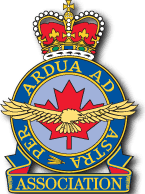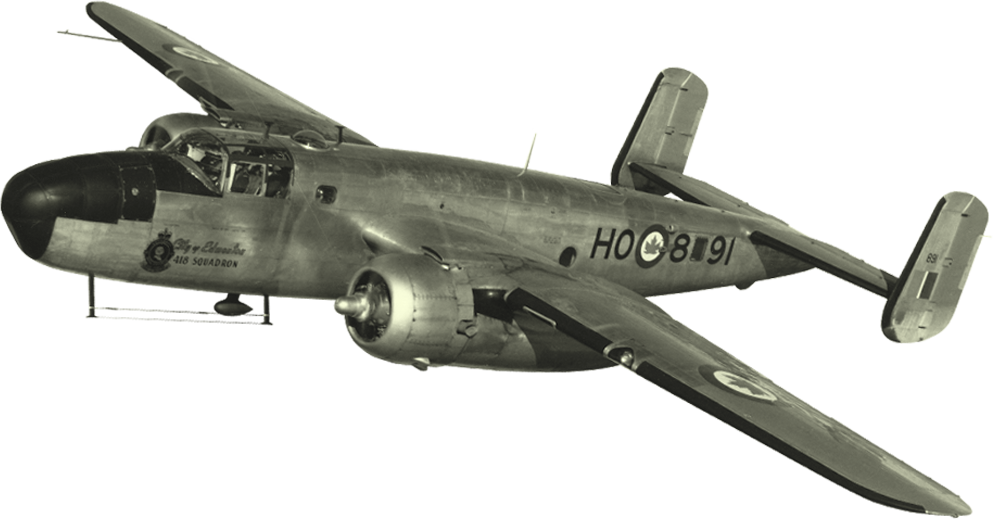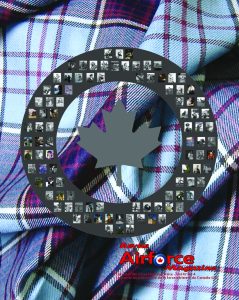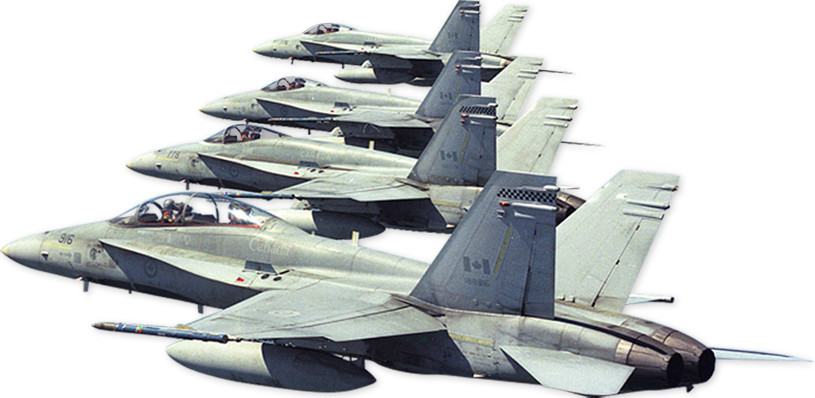BIRCHALL,
Leonard Joseph
Squadron Leader,
No.413 Squadron,
C775
Distinguished Flying Cross - Officer, Order of the British Empire
RCAF Personnel Awards 1939-1949
Description (click to view)
BIRCHALL, S/L Leonard Joseph (C775) - Distinguished Flying Cross - No.413 Squadron - Award effective 13 May 1943 as per London Gazette dated 18 May 1943 and AFRO 1078/43 dated 11 June 1943. Born 6 July 1915 in St.Catharines, Ontario (birth date in obituary notice); home in St.Johns, Ontario. Served in Lincoln Regiment (1932-1933); enrolled in Royal Military College, 1933; to Royal Canadian Corps of Signals in 1934 and RCAF (P/P/O, 5 July 1937). Received wings, 20 May 1938 and posted to No.5 (BR) Squadron, Dartmouth, Nova Scotia. Signal specialist with Eastern Air Command Headquarters, 1940; Chief Navigation Officer at No.2 Training Command, Winnipeg, 1941. Posted to No.413 Squadron, Shetland Islands, 1941; shot down and taken prisoner, 5 April 1942; became Senior Allied Officer, POW work camp, Yokohama. Repatriated to Canada in October 1945. Director of Personnel Administration, AFHQ, 1946; Member of U.S. Prosecuting Team at War Crimes Trials, Japan, 1947. As a Group Captain he became Assistant Attache to Canadian Joint Staff in Washington, 1948; appointed CO of Station Goose Bay, 1950; to Air Material Command Headquarters, 1952; to Canadian NATO Delegation in Paris, 1954; to be CO of Station North Bay, 1958; promoted to Air Commodore in 1960 and made Chief of Operations at AFHQ; to be Commandant of Royal Military College, 1963; released 1967. DFC and OBE presented 29 April 1949. Awarded Queen's Coronation Medal, 23 October 1953 while Group Captain at Air Material Command Headquarters. Appointed Honourary Colonel, No.413 Squadron, June 1989. Toronto Star, 13 August 1994 reported his being assigned to Ceylon that month to monitor elections there. Appointed Member, Order of Canada, February 2000; admitted to Canadian Aviation Hall of Fame, 2001. Died in Kingston, Ontario, 10 September 2004. Photo PL-117420 is a portrait as Wing Commander. See also RMC Club Newsletter (November 1982), Air Force (issues for March, June and September 1983); "Trenton to Dartmouth; An Anecdotal Account of Flying in the RCAF, 1937-1940" in Journal of the Canadian Aviation Historical Society, Volume XXIII No.2 (June 1985) and note on induction into Hall of Fame, Journal of the Canadian Aviation Historical Society, Volume 39, No.3 (Fall 2001). // This officer was the first to sight and report the approach of the Japanese naval forces which attacked Ceylon. His timely warning enabled preparations to be made which resulted in considerable losses to the enemy. Squadron Leader Birchall had recently arrived from England where he has had many operational successes. // NOTE: The original recommendation is found in Public Record Office Air 2/8951. There is no date for when W/C Plant drafted it, but the Air Officer Commanding, No.222 Group, endorsed it on 8 August 1942. The text (differing little from that which was gazetted) read:. // This officer was the first to sight and report the approach of the Japanese naval forces which attacked Ceylon. He did not return from his mission, but his timely warning enabled preparations to be made which resulted in considerable losses to the enemy forces. Only two days before this flight he had arrived from England where he had achieved a long record of operational successes. // BIRCHALL, W/C Leonard Joseph, DFC (C775) - Officer, Order of the British Empire - No.413 Squadron - Award effective 2 February 1946 as per London Gazette dated 5 February 1946 and AFRO 280/46 dated 15 March 1946. // In April 1942, this officer was shot down and captured after sending out the warning from his patrolling seaplane that a large force of Japanese warships was approaching Ceylon. Throughout his three and a half years as a prisoner of war, Wing Commander Birchall, as Senior Allied Officer in the prisoner of war camps in which he was located, continually displayed the utmost concern for the welfare of his fellow prisoners. On many occasions, with complete disregard for his own safety, he prevented, as far as possible, Japanese officials of various camps from sadistically beating his men and denying prisoners the medical attention which they so urgently needed. Typical of his splendid gallantry was when in the Niigato Camp, he called a sit-down strike in protest against ill-treatment of his men. On another occasion when the Japanese wanted to send some sick prisoners of war to work, Wing Commander Birchall found it necessary, at great personal risk, to forcibly prevent the Japanese non-commissioned officer in charge from making these prisoners work. As a result, Wing Commander Birchall spent several days in solitary confinement. Nevertheless, the sick prisoners of war did not have to work. Knowing that each time he forcibly intervened on behalf of his men he would receive brutal punishment, Wing Commander Birchall continually endeavoured to improve the lot of his fellow prisoners. He also maintained detailed records of personnel in his camps along with death certificates of deceased personnel. The consistent gallantry and glowing devotion to his fellow prisoners of war that this officer displayed throughout his lengthy period of imprisonment are in keeping with the finest traditions of the Royal Canadian Air Force. // BIRCHALL, G/C Leonard Joseph (C775) - Officer, Legion of Merit (United States) - awarded as per AFRO 443/50 dated 8 September 1950. // Group Captain Leonard J. Birchall, Royal Canadian Air Force, distinguished himself by exceptionally meritorious conduct in the performance of outstanding services from 4 April 1942 to 20 June 1950. As Senior Officer in the Japanese Prisoner of War Camp at Yokohama, Group Captain (then Wing Commander) Birchall worked tirelessly and fearlessly to improve the physical and mental welfare of British, American and Canadian prisoners under his command. His exploits became legendary throughout Japan and brought renewed faith and strength to many hundreds of ill and disheartened prisoners. Subsequent to his liberation he contributed information and material of inestimable value in connection with war crimes investigations. More recently, as Deputy to the Air Member, Canadian Joint Staff, Washington, D.C., Group Captain Birchall has constantly demonstrated a superior understanding of the relationship between the United States Air Force and the Royal Canadian Air Force and his sound judgement, tact and unfailing spirit of cooperation have materially assisted the Permanent Joint Board on Defence, Canada-United States in the accomplishment of its mission. // The following story by Joanne Laucius, “Hero was ‘the saviour of Ceylon’|, appeared in the Ottawa Citizen, Tuesday, 14 September 2004: // Air Commodore Leonard Birchall was hailed as “the saviour of \Ceylon” by Winston Churchill for alerting the British that a Japanese fleet was en route to attack. // But the Canadian war hero’s courage in the prison camps of Japan also formed a part of his legacy. The diminutive officer with the tough attitude stood up to the captors who had tortured and beaten him and demanded better treatment under the Geneva conventions. // “He was responsible for the few medicines and the little fairness that they got,” said Cliff Chadderton, chairman of the National Council of Veterans Associations in Canada and a friend of Air Commodore Birchall’s. // Air Commodore Birchall, 89, died Friday after a battle with lung cancer. // He was a squadron leader of a crew that consisted of one other Canadian and several British airmen in a Catalina flying boat patrolling an area south of Ceylon on April 4, 1942. The crew was about to turn back when a crew member spotted ships on the horizon. // “As we got close enough to identify the lead ships, we knew at once what we were into, but the closer we got the more ships appeared and so it was necessary to keep going until we could count and identify them all,” Air Commodore Birchall would later recount. “By the time we did this, there was little chance left.” // The wireless operator with Air Commodore Birchall’s crew was sending out a message to confirm the formidable Japanese presence in the area when a shell destroyed the radio. The burning Catalina landed in the water. One crew member could not get out, and another two did not survive the strafing that followed. Six members of the crew including Air Commodore Birchall were taken prisoner and remained captives for the remainder of the war. // Had he failed to get the first message through, “it would have been another Pearl Harbour”, said Mr. Chadderton. // “In Churchill’s books, he is very strong in saying that, had the British fleet been defeated at Ceylon, it would have ‘closed the circle’ and North Africa would have gone to the Germans.” // As a prisoner, Air Commodore Birchall did much to maintain the dignity and morale of fellow prisoners, said Steven Harris, chief historian of the Directorate of History and Heritage at the Department of National Defence. “It takes real strength of character to carry that off.” // After the war ended, he returned to Japan to testify at a war crimes tribunal. At home, he continued to fight for restitution for prison camp survivors. Appearing in front of Parliamentary committees, he was a formidable personality, describing how starving prisoners would survive on a “cocktail” of cricket juice. // He allowed writer Dave McIntosh to use material from the 22 notebooks he buried and later retrieved after the war for the 1997 book Hell on Earth, // “Death is always with us. All of us are in very poor shape physically and it does not take much in the way of sickness to push us over the edge,” he wrote. // More than 50 years after they were released, the surviving Canadian prisoners of war were awarded $ 24,000 each by the Canadian government. Under a 1952 treaty, Japan was not responsible for the claims. // Air Commodore Birchall was awarded the Order of the British Empire for Gallantry and the Distinguished Flying Cross. He was the only member of the Canadian military to earn five clasps to his Canadian Forces Decoration, representing 62 years of service with the air force. // In 2000, he was named a Member of the Order of Canada and in 2001 he was given the Vimy Award. In May 2003 a training search and rescue boat was named Saviour of Ceylon in his honour. // Funeral services for Air Commodore Birchall were held yesterday in Kingston. He was predeceased by two wives and is survived by his third wife, Kathleen, two daughters and a son, a stepdaughter and stepson, as well as four grandchildren and four great grandchildren. // RCAF Pres Release No. 7272 dated 31 October 1947 read as follows: // The testimony of an RCAF officer, Wing commander L.J. Birchall, OBE, DFC, is to be heard in the war crime trials of Japanese army officials now being tried by the Americans for mistreatment of Allied prisoners-of-war, it was announced today by Air Force Headquarters, Ottawa. // W/C Birchall, whose home is at (152 Belmont Ave.,) Ottawa, and whose parents, Mr. and Mrs. J. Birchall, live at (114 Queenston Street) St. Catharines, Ontario, is to leave shortly for Japan where he will testify against officials who were in charge of camps in which he was held by the Japanese during the three and one-half years he was a prisoner of war. Among those against whom he will be giving testimony will be Lieutenant Hayashi, commandant of the Yokohama Stadium Camp where F/C Birchall spent all but one year of his imprisonment in Japan, and Sgt. Ushioda, a medical sergeant at the same camp. Testimony by affidavit has already been given against these two by F/C Birchall, the material having been taken from the diary he secretly kept while a Japanese prisoner. // Known as the “Saviour of Ceylon” for the wireless warning he sent upon sighting a Japanese fleet approaching the strategic island, W/C Birchall is to leave Sunday, November 2, for Washington, D.C., and will proceed from there to Japan by American service aircraft. // A squadron leader at the time, W/C Birchall was taken prisoner in April, 1942. His capture came shortly after he had flown his Catalina flying boat from Scotland to Ceylon, to join 413 Squadron there. Only a day or two after his arrival at Ceylon, W/C Birchall was ordered out on reconnaissance against energy shipping. While on this flight, W/C Birchall sighted the approaching Japanese fleet, and had only time to send a hasty wireless report back before being shot down. His aircraft was not heard from again and for some time it was believed he was dead. // His report, however, was enough to allow preparations to be made, and when Japanese carrier aircraft struck at Ceylon, they were repulsed with heavy losses. W/C Birchall’s report, giving the position of the enemy fleet, had made this possible, and it won him an immediate DFC. // Picked up by the Japanese, he was sent to a prisoner of war camp in Japan, and his conduct there resulted in the OBE awarded upon his release. The citation covering this reads in part: “As Senior Allied Officer in the camps in which he was located, he continually displayed the utmost concern for the welfare of his fellow prisoners. On many occasions, with complete disregard for his own safety, he prevented, as far as possible, Japanese officials from sadistically beating his men and denying prisoners the medical attention which they so urgently needed. Typical of his splendid gallantry was when, in the Yokohama Camp, he called a sit-down strike in protest against ill-treatment of his men. On another occasion, when the Japanese wanted to send some sick prisoners of war to work, W/C Birchall found it necessary, at great personal risk, to forcibly prevent the Japanese non-commissioned officer in charge from making these prisoners work. As a result, W/C Birchall spent several days in solitary confinement. // Nevertheless, the sick prisoners of war did not have to work. Knowing that each time he forcibly intervened on behalf of his men he would receive brutal treatment, W/C Birchall continually endeavoured to improve the lot of his fellow prisoners. He also maintained detailed records of personnel. The consistent gallantry and glowing devotion to his fellow prisoners of war that this officer displayed through his lengthy period of imprisonment are in keeping with the finest traditions of the Royal Canadian Air Force”. // With W/C Birchall during his first two and one-half years as a Japanese prisoner was Flying Officer G.C. Onyette of Huntsville, Ontario, who was observer of the Catalina. F/O Onyette,, now a member of the Regular RCAF, is stationed at Edmonton. // Born and raised in St. Catharines, Ontario, W/C Birchall entered the RCAF in 1937, after being graduated from St. Catharines Collegiate and the Royal Military College, Kingston.
BIRCHALL,
Leonard Joseph
Group Captain,
NA,
C775
Officer, Legion of Merit (United States)
CF Postwar Aviation Services
Description (click to view)
BIRCHALL, G/C Leonard Joseph, OBE, DFC (C775) - Officer, Legion of Merit (United States) - awarded as per AFRO 443/50 dated 8 September 1950. Born 6 July 1915 in St.Catharines, Ontario; home in St.Johns, Ontario. Served in Lincoln Regiment (1932-1933); enrolled in Royal Military College, 1933; to Royal Canadian Corps of Signals in 1934 and RCAF (P/P/O, 5 July 1937). Received wings, 20 May 1938 and posted to No.5 (BR) Squadron, Dartmouth, Nova Scotia. Signal specialist with Eastern Air Command Headquarters, 1940; Chief Navigation Officer at No.2 Training Command, Winnipeg, 1941. Posted to No.413 Squadron, Shetland Islands, 1941; shot down and taken prisoner, 5 April 1942; became Senior Allied Officer, POW work camp, Yokohama. Repatriated to Canada in October 1945. Director of Personnel Administration, AFHQ, 1946; Member of U.S. Prosecuting Team at War Crimes Trials, Japan, 1947. As a Group Captain he became Assistant Attache to Canadian Joint Staff in Washington, 1948; appointed CO of Station Goose Bay, 1950; to Air Material Command Headquarters, 1952; to Canadian NATO Delegation in Paris, 1954; to be CO of Station North Bay, 1958; promoted to Air Commodore in 1960 and made Chief of Operations at AFHQ; to be Commandant of Royal Military College, 1963; released 1967. DFC and OBE presented 29 April 1949. Awarded Queen's Coronation Medal, 23 October 1953 while Group Captain at Air Material Command Headquarters. Appointed Honourary Colonel, No.413 Squadron, June 1989. See also RMC Club Newsletter (November 1982), Air Force (issues for March, June and September 1983); "Trenton to Dartmouth; An Anecdotal Account of Flying in the RCAF, 1937-1940" in Journal of the Canadian Aviation Historical Society, Volume XXIII No.2 (June 1985).
Group Captain Leonard J. Birchall, Royal Canadian Air Force, distinguished himself by exceptionally meritorious conduct in the performance of outstanding services from 4 April 1942 to 20 June 1950. As Senior Officer in the Japanese Prisoner of War Camp at Yokohama, Group Captain (then Wing Commander) Birchall worked tirelessly and fearlessly to improve the physical and mental welfare of British, American and Canadian prisoners under his command. His exploits became legendary throughout Japan and brought renewed faith and strength to many hundreds of ill and disheartened prisoners. Subsequent to his liberation he contributed information and material of inestimable value in connection with war crimes investigations. More recently, as Deputy to the Air Member, Canadian Joint Staff, Washington, D.C., Group Captain Birchall has constantly demonstrated a superior understanding of the relationship between the United States Air Force and the Royal Canadian Air Force and his sound judgement, tact and unfailing spirit of cooperation have materially assisted the Permanent Joint Board on Defence, Canada-United States in the accomplishment of its mission.








